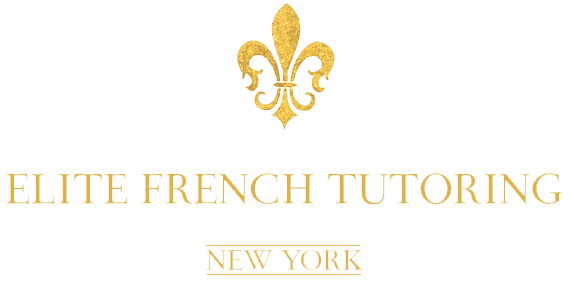Starting a new language might seem daunting at first. But Portland has some great options for beginners. Local schools offer everything from university programs to one-on-one tutoring.
Many institutions provide complete support with multimedia resources, free tutoring sessions and hands-on learning experiences.
We looked at the best places to learn French in Portland. Our team assessed teacher credentials, classroom methods, and real-world results.
Students who complete a two-year program can usually handle everyday conversations with confidence. This skill level works perfectly for people interested in international affairs, political science, or global business careers.
Table of Contents
Toggle1. Portland Community College (PCC) French Program
Portland Community College is one of the best places to start learning French in the Rose City. Students can learn at multiple campuses throughout the metro area.
PCC gives new French speakers a great way to start learning this beautiful language. The college blends academic excellence with practical learning, which works well for beginners who want to build a strong foundation.
PCC French Program Overview
The French program at Portland Community College shines as a top choice for students who want structured language education. You’ll find it in PCC’s World Languages department with courses from elementary to intermediate levels.
The college makes language education available to many students through its multiple Portland locations.
Experienced educators who understand language learning theory have created PCC’s French curriculum. Students progress from simple conversations to complex grammar and vocabulary. The instructors must have advanced French degrees, which means students learn from qualified professionals.
The college has first, second, and third-year French courses that build on each other. First-year focuses on the basics – essential vocabulary, simple sentences, and grammar rules.
Second-year moves into complex conversations and reading. Third-year students read French literature and develop advanced speaking skills.
PCC stands out because it focuses on practical learning. Teachers include real-life situations and current cultural topics in their lessons instead of just academic French. This approach works well for adults who want to use French at work or while traveling.
Course Structure and Methodology
French courses at PCC follow a clear path to build student confidence. Each course runs 10-11 weeks in the quarter system. Classes meet 2-3 times each week for 1.5-2 hours. This schedule helps working adults stay consistent with their learning.
PCC uses several proven teaching methods:
- Communicative Language Teaching: Makes interaction the key to learning
- Total Physical Response: Uses movement to help remember language
- Task-Based Learning: Completes real-life tasks in French
Students use a main textbook, online resources, and teacher materials. PCC also uses French films, music, podcasts, and apps. This mix of materials helps different types of learners and lets them hear native French speakers.
A typical beginner class starts with a warm-up to review previous learning. Students then learn new concepts through guided practice before trying more open activities. Classes end with a quick check or preview of upcoming lessons.
PCC excels at teaching all four language skills: reading, writing, listening, and speaking. While some tutors might focus just on conversation, PCC students develop complete language skills. Classes stay small with 15-25 students, which balances personal attention and group practice.
Benefits for Beginners
PCC gives new French learners many advantages. The structured lessons help students measure their progress and stay motivated. The step-by-step courses prevent gaps in learning that might happen with casual study.
Students also benefit from PCC’s supportive community. Learning a language can feel scary, especially for adults who worry about mistakes. Teachers create classrooms where trying new things is encouraged and mistakes help learning.
The college has great extra resources:
- Language labs with special software
- Practice groups outside class
- Tutors for language students
PCC sometimes hosts French cultural events, shows films, and works with Alliance Française on special programs. These activities let beginners experience French culture beyond class and stay excited about learning.
Students can earn college credit at PCC, which helps those working toward degrees or planning to study at universities. This makes PCC different from private language schools or informal classes.
Teachers know how to help nervous beginners feel comfortable. They start with simple practice and slowly build up to open conversations as students gain confidence.
2. Elite French Tutoring
Students looking for individual attention in their language learning experience will find unmatched benefits in one-on-one French instruction.
Elite French Tutoring leads Portland’s premier private French instruction service. They focus only on tailored learning rather than traditional classroom settings. Students get a customized curriculum that matches their specific needs, learning style, and pace.
Personalized Learning Approach
Elite French Tutoring’s method revolves around instruction that adapts to individual learning styles. Private tutoring lets instructors give immediate feedback and adjustments during each session, unlike group classes, where teachers must balance many students’ needs. Lessons change based on your progress, challenges, and interests.
Your tutor starts with a detailed assessment of your French proficiency, even if you’re a complete beginner. They create a customized learning plan targeting your specific goals – business French, travel preparation, or academic advancement.
Students make progress 30-40% faster than in traditional classroom settings thanks to this individual attention.
Elite French Tutoring stands out with their flexible scheduling system. Students can schedule sessions around their personal and professional commitments instead of following rigid semester timetables. .
Their method puts practical conversation skills first. Students start simple dialogs in their first session, even absolute beginners.
They build confidence through guided practice instead of passive learning. Students develop practical language skills they can use right away outside class.
Instructor Qualifications
Elite French Tutoring maintains high hiring standards that show in their teaching quality. Their tutors have advanced degrees in French language, literature, or linguistics.
Most hold Master’s degrees from respected schools. They’ve lived in French-speaking countries for at least two years, bringing authentic cultural knowledge and linguistic expertise.
Elite’s instructors prove exceptional teaching ability beyond academic credentials. The company runs a tough selection process—only 15% of applicants pass their multi-stage evaluation. Candidates must show teaching techniques, language proficiency, and cultural knowledge.
Native or near-native French speakers make up their entire teaching staff. These instructors keep current connections with French-speaking communities.
Students learn contemporary, practical French instead of textbook language. Several teachers previously worked at prestigious schools like Paris’s Sorbonne and Montreal’s McGill University. They bring diverse teaching approaches to their lessons.
Instructors stay current with new language teaching methods through quarterly training sessions. They learn new instructional techniques, technology integration, and student engagement strategies. This ongoing growth means better instruction for Portland’s French language students.
Beginner-Friendly Curriculum
Elite French Tutoring makes French available to complete beginners while maintaining high academic standards. New learners build confidence through achievable goals instead of facing complex grammar rules immediately.
Beginners follow a structured path that introduces new concepts at the right pace. Early sessions focus on pronunciation basics and survival phrases students can use right away. Students then build vocabulary around their interests—travel, cuisine, business, or culture.
Their beginner method has these key parts:
- Pronunciation workshops with audio recording feedback
- Customized vocabulary building around personal interests
- Gradual grammar introduction through practical examples
- Cultural context that makes language learning meaningful
- Regular progress assessments with tangible standards
Tutors adapt the curriculum to fix specific learning challenges. Students struggling with certain sounds or grammar get targeted exercises to overcome these hurdles. This personal troubleshooting prevents frustration that often makes language learners quit.
Adult learners get cognitive learning strategies that match how they learn languages differently from children. Adults learn better by understanding grammar patterns and connecting to knowledge they already have, including other languages.
Cost and Commitment
Private instruction costs more than group classes because of personal attention and customized curriculum development. Elite French Tutoring uses a tiered pricing system based on package commitments:
- Single sessions, 40 minutes: $100
- Single sessions, 60 minutes: $125
Many clients find the faster progress worth the higher cost compared to group classes at places like Portland Community College. Private tutoring often proves more economically efficient for reaching fluency when you factor in personal attention versus divided attention in groups.
Students get plenty of flexibility with their commitment. They can buy packages and schedule sessions around their availability instead of registering upfront for several months like semester-based programs. Professionals with changing schedules and frequent travelers appreciate this flexibility.
Package sessions last 6-12 months depending on size. Students have enough time to complete lessons without rushing their learning. The company backs their service with a satisfaction guarantee – unhappy clients get a full refund or different instructor after their first session.
Elite French Tutoring offers several payment choices for those watching their budget. Options include monthly installment plans for bigger packages and corporate billing for company-sponsored language training. They also have special pricing for academic prep like AP French exam tutoring or college course support.
3. Portland State University (PSU) French Department
Portland State University sits right in downtown Portland. Its World Languages & Literatures Department takes a complete approach to teaching French.
The university setting stands apart from community colleges and private tutors. PSU’s French classes come from faculty with advanced degrees in French linguistics, literature, and culture, all within a proven academic framework.
PSU French Program for Beginners
PSU’s French program guides newcomers through four sequential first-year courses. The academic calendar breaks learning into quarters, and each course builds on what students learned before. This well-laid-out path lets beginners master basic concepts before moving to harder material.
Students learn essential pronunciation, simple grammar, and everyday vocabulary in their first year. PSU’s program stands out because it teaches both language mechanics and cultural context. First-year students explore French-speaking cultures and traditions while they learn vocabulary.
Classes stay small with 15-25 students, which gives everyone personal attention and group practice time. Students get more feedback than at bigger schools but more conversation partners than private tutoring offers.
Teachers use a practical approach that focuses on real communication instead of memorization. They speak French during parts of each class and use more French as students improve.
PSU helps beginners develop all four language skills at once—speaking, listening, reading, and writing. This complete approach will give students balanced abilities rather than strength in just one area. Most students reach A1 level and move toward A2 on the Common European Framework scale by year’s end.
Available Resources and Support
PSU gives language learners many tools beyond regular classes. The language learning center has special software, audio materials, and authentic content from French-speaking countries. Students can practice on their own between classes with this technology.
Students get more support options than private tutoring:
- Weekly conversation practice with advanced students or native speakers
- Writing help from specially trained consultants
- Affordable peer tutoring for enrolled students
- French Club meets for casual practice
Cultural events, films, and guest speakers help students use French naturally. These community gatherings make language learning more engaging and real.
The university’s study abroad connections with schools in France, Canada, and other French-speaking regions add value. While mostly for advanced students, some short immersion trips work for motivated beginners who finish their first year.
Students also get online materials, practice exercises, and recorded lectures through PSU’s learning system. This digital support proved crucial during COVID-19 and still helps students practice beyond the classroom.
Campus Learning Environment
PSU’s campus creates natural advantages for adult French learners in Portland. Students join a community where they meet others with similar goals. These connections lead to practice opportunities and study partnerships that strengthen classroom learning.
The downtown campus brings together a diverse mix of students. International students and faculty add authentic language experiences beyond textbook examples. This multicultural setting shows how French works in real life.
Language classrooms have modern audio, video, and interactive systems for immersive learning. Some rooms feature movable furniture that works for lectures, conversation circles, or small groups.
Students can study in various campus spots between classes. The library keeps French materials for beginners, including special readers at the right level. These books let new learners practice reading comfortably.
Teachers hold regular office hours all year for extra help. This direct access to language experts gives beginners professional guidance when they need it most. Having the same teachers creates better learning than short-term tutoring arrangements.
Registration and Costs
New students must apply first, either for a degree or through non-degree enrollment. After acceptance, they register online, with earlier times based on their year in school.
Oregon residents pay $405-$486 per 4-credit course, making a full year cost $1,620-$1,944. Non-residents pay more, about $620-$744 per course. These rates cost more than community college but less than private tutoring.
Students need $150-$200 for first-year textbooks. Regular student fees cover campus services. The World Languages Department offers some scholarships for financial help.
Classes run in 10-week quarters with several schedule options:
- Morning classes (9:00-10:50 AM, Monday/Wednesday/Friday)
- Midday classes (12:00-1:50 PM, Monday/Wednesday/Friday)
- Evening classes (6:00-7:50 PM, Tuesday/Thursday, plus online work)
These times fit different schedules, though evening classes have fewer sections. Students should register 2-3 weeks before quarters start. Late registration costs extra during the first week.
PSU sometimes offers weekend workshops or summer programs for busy professionals. These intensive options pack beginning French into shorter periods for students who can’t take regular quarters.
4. Alliance Française de Portland
Alliance Française de Portland stands out as a cultural hub in the city’s language learning scene. This non-profit organization belongs to the global Alliance Française network and combines language teaching with real cultural experiences. Students who tried Elite French Tutoring but want a more social setting with cultural context will find this a great alternative.
Cultural Immersion Approach
Students at Alliance Française de Portland learn French through cultural context rather than just grammar drills. The teaching philosophy believes that people learn best when they connect with real cultural materials and conversations. Students experience French as a living language from the start through music, films, food, and art in every class.
Teachers create an immersive classroom environment that focuses on communication. Classes run in French from day one, and teachers use gestures, pictures, and context clues to explain meanings without switching to English. This natural approach helps students develop their listening skills and tune their ears to French sounds and patterns.
Alliance Française takes a different path from academic programs by making cultural elements central to learning, not just extras. Each course teaches about traditions, customs, and modern life across French-speaking regions. This knowledge helps students understand the language better.
French Classes Portland Oregon Offerings
Alliance Française de Portland has structured French classes that work for different skill levels and goals. The course lineup includes:
- Complete Beginner (A1.1) – For absolute newcomers to the language
- Elementary (A1.2-A2) – Building fundamental conversation skills
- Intermediate (B1-B2) – Expanding vocabulary and grammatical precision
- Advanced (C1-C2) – Refining fluency and cultural nuance
Weekly classes keep groups small with 8-12 students, which creates an interactive space where everyone gets to practice speaking. This size hits the sweet spot between private lessons and big university classes. The courses follow the Common European Framework of Reference (CEFR) standards to ensure consistent quality.
Community Events and Practice Opportunities
Alliance Française goes beyond regular classes by creating many chances to practice French in social settings. The calendar is full of conversation groups, movie nights, book talks, cooking demos, and cultural celebrations that members and students can join. These activities turn language learning into a real experience.
The organization’s space works as a meeting point for French enthusiasts who come for both classes and casual chats.
Members can use a French library filled with books, magazines, movies, and audio materials for all skill levels. These resources are a great way to get extra practice outside of class.
Students looking for total immersion can join cultural trips both in Portland and abroad. These range from visits to local French restaurants to guided tours in French-speaking regions, which lets students use their French in real situations.
Pricing Structure for Beginners
Adult French classes run in 8-10 week terms. Beginner courses cost between $250-$350 per term, based on length and frequency. The price sits between Portland Community College’s lower rates and Elite French Tutoring’s premium one-on-one lessons.
New students pay a one-time signup fee plus membership dues, but these come with perks like library access, free entry to some cultural events, and partner discounts around Portland.
Classes fit different schedules with weekday evenings, weekend mornings, and some intensive weekend workshops. Payment plans and scholarships help make in-person French classes available to more people. Members get first pick for popular beginner courses that fill up fast.
Comparison Table
| Feature | Portland Community College | Elite French Tutoring | Portland State University | Alliance Française de Portland |
| Type of Institution | Public Community College | Private Tutoring Service | Public University | Non-profit Cultural Organization |
| Class Size | 15-25 students | 1-on-1 instruction | 15-25 students | 8-12 students |
| Course Structure | 10-11 week quarters | Flexible scheduling | 10-week quarters | 8-10 week terms |
| Pricing (Beginner Level) | $472-$590 per course (in-state) | $100-125/hour (package dependent) | $405-$486 per course (in-state) | $250-$350 per term |
| Additional Resources | Language lab, study support, chat groups | Custom materials with audio feedback | Learning center, chat sessions, study abroad options | French library, cultural events, movie nights |
| Location/Accessibility | Several campuses in Portland | Online via Zoom, Google Meet | Downtown Portland campus | Dedicated cultural center |
| Teaching Approach | Academic program with real-world practice | One-on-one customized learning | Academic focus with cultural elements | Learn through cultural immersion |
| Instructor Qualifications | Advanced degrees in French/related fields | Native/near-native speakers with advanced degrees | PhD faculty with specialized expertise | Not mentioned |
Conclusion
Portland has several great ways to learn French that fit different styles and goals. Portland Community College is known for its well-laid-out and budget-friendly classes.
Elite French Tutoring shines with tailored instruction. Portland State University gives you detailed academic resources, and Alliance Française creates a genuine cultural setting to learn.
These schools teach French differently but deliver quality education. Students who like traditional classroom settings at good prices will find Portland Community College a perfect match.
Elite French Tutoring works best if you need a flexible schedule with one-on-one attention. Portland State University is ideal for students who want full academic support. Alliance Française draws people who love French culture.
Your specific needs should guide your choice. Portland Community College’s rates make sense if you’re on a budget.
Elite French Tutoring’s tailored approach helps when you need schedule flexibility and quick progress. Portland State University is the right choice if you want academic credits. Alliance Française might be your best bet if you want to dive into French culture.
Success in learning French comes from regular practice. These institutions give you unique tools to help you become fluent. Pick a program that fits your style, schedule, and budget.





